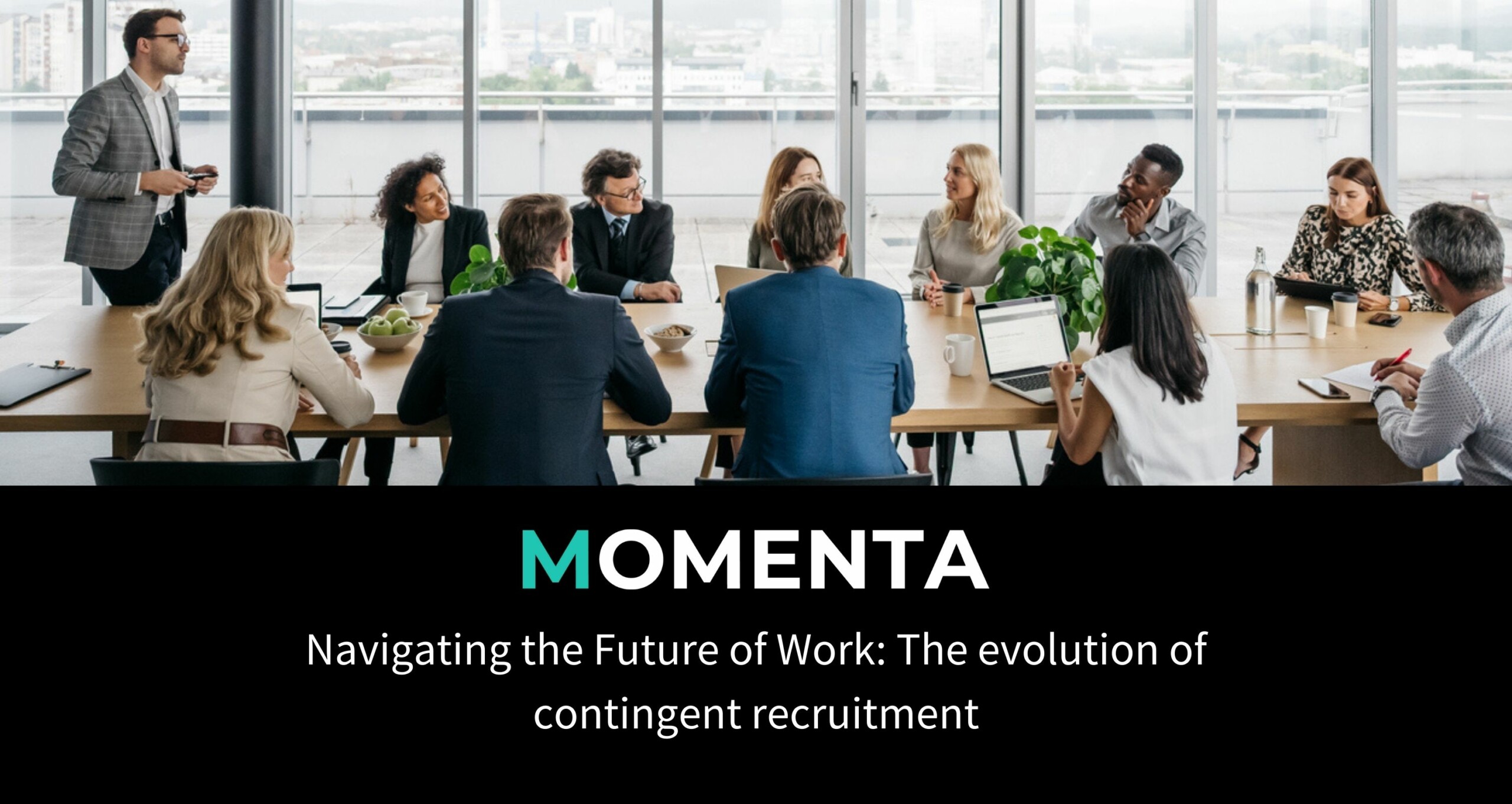Navigating the Future of Work: The evolution of contingent recruitment
In an era marked by rapid technological advancements, shifting workplace dynamics the landscape of work is undergoing a profound transformation. As businesses embrace flexibility and agility, contingent recruitment has appeared as a pivotal force, reshaping the way organisations engage with talent. In this blog, we delve into the intriguing realm of the future of work within the context of contingent recruitment and explore the trends that are shaping this exciting journey.
Contingent roles and flexibility
The contingent economy, characterised by short-term contracts and freelance work, is redefining the traditional employer-employee relationship[1]. Organisations are increasingly using contingent workers to adapt to fluctuating demands, access specialised ability, and drive innovation. This evolution empowers professionals to curate their careers, exploring diverse opportunities and work arrangements that suit their skills and aspirations.
Remote work revolution
The global embrace of remote work has amplified the scope of contingent recruitment. Remote technology and virtual collaboration tools have enabled companies to tap into a global talent pool, transcending geographical boundaries. Contingent workers can now seamlessly contribute to projects regardless of their physical location, leading to a paradigm shift in how businesses structure their teams.
Skills over credentials
In the future of work, competencies and skills take centre stage, outshining traditional educational qualifications. Employers are recognising that a candidate’s ability to execute tasks effectively often outweighs formal degrees. Contingent recruitment thrives on this principle, connecting organisations with candidates who possess precisely the skills required for specific roles, leading to increased efficiency and productivity.
Hybrid work models
A hallmark of the future of work is the prevalence of hybrid work models, blending remote and on-site contributions. Contingent recruitment seamlessly accommodates these models, offering candidates opportunities to engage in projects remotely while fostering in-person collaboration when necessary. This approach amplifies work-life balance and enables businesses to harness a diverse range of talent.
Lifelong learning and reskilling
As industries evolve, continuous learning and reskilling become imperative. Contingent recruitment agencies are facilitating this transition by connecting candidates with opportunities to enhance their skill sets and pivot into new roles. Lifelong learning initiatives are pivotal in ensuring that contingent workers stay adaptable and competitive in a swiftly changing job market.
Diversity and inclusion advancements
Contingent recruitment is catalysing diversity and inclusion efforts. By connecting businesses with a diverse talent pool, this approach fosters varied perspectives, enriching organisational culture and innovation. Companies are harnessing contingent workers to inject fresh ideas, experiences, and expertise into their projects.
The future of work within the realm of contingent recruitment is a captivating journey marked by innovation, agility, and empowerment. As technology propels us forward, the dynamics of how we engage with work are being redefined. Contingent recruitment is at the forefront of this transformation, orchestrating a harmonious symphony between businesses and the talents that fuel their success. At Momenta , we are dedicated to embracing these trends and pioneering a future where the boundaries of work are limitless.
Are you ready to embrace the future of work through contingent recruitment? Connect with us today and embark on a journey of growth, flexibility, and unparalleled opportunities.
